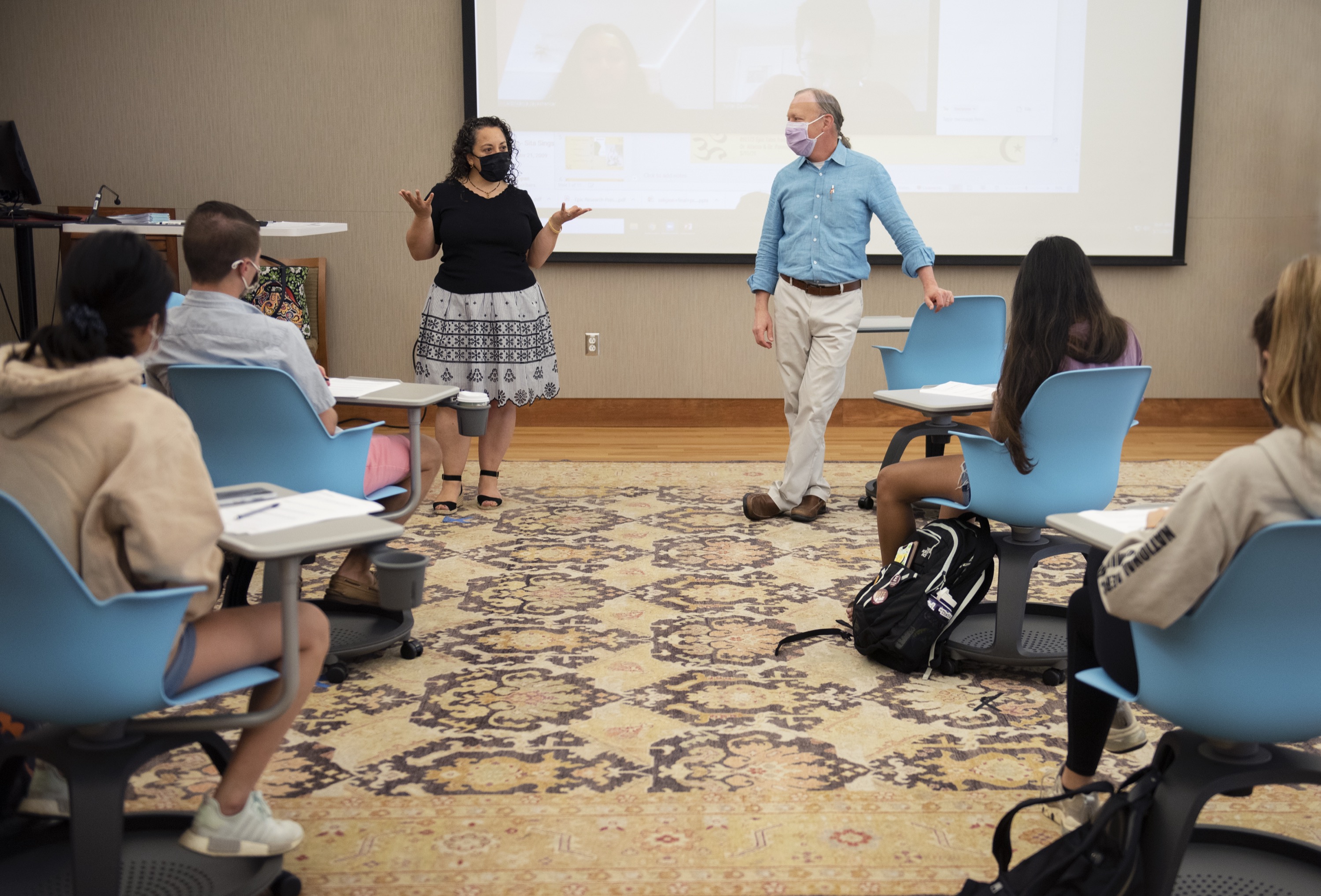In the spring, Amy Allocco and Brian Pennington led the inaugural Elizabeth “Tate” Replogle Endowment for Team Teaching in Religious Studies course.
As an expert on South Indian religious traditions, Amy Allocco uses an anthropological lens to teach about the religions of South Asia. Brian Pennington, on the other hand, is a historian of modern Hinduism who focuses on the most northern region of the country. While they have a common interest in Indian religions, their expertise seldom overlaps in the classroom. That is until this past spring, when a unique endowment gift from an Elon family made it possible for the faculty members in the Department of Religious Studies to teach a class together.
The course, REL 172: Epic Tales from India, introduced students to the two great epic traditions of India, Ramayana and Mahabharata, which also happen to be topics of interest for Allocco and Pennington, respectively. Using rich imagery, which students analyzed on the spot in class, the pair explored these influential stories from their origins in India and traced their spread throughout South and Southeast Asia. “We made the conscious decision to make it an introductory course to appeal to a broader audience,” says Pennington, including first-year students who had never been exposed to these ancient texts.
That also meant they had to be selective about how deep to take the class discussion. “Students read primary texts, but we focused on looking at how people engage with these texts,” Allocco says. How are these stories portrayed through performing arts, political discourse and popular culture? How does socioeconomic status affect how people interact with the texts? For instance, during the pandemic, affluent Indians who stayed at home were able to enjoy reruns of TV portrayals of these stories while the poor were not, something that led to much controversial discourse on social media.
It creates an opportunity for students to experience intellectual exchange right in front of their eyes. They get to see our curiosity on display.” — Amy Allocco, associate professor of religious studies
“We used the epics to crack open a whole range of issues,” Allocco says, including social inequalities, gender identities and environmental issues. “We were able to look at the epics through the #MeToo movement and in terms of diversity, equity and inclusion questions. Students are interested in these issues and were able to discuss them in a more internationalized and global context.”
The class also allowed Allocco and Pennington to learn from one another and from their students, some of whom were of South Asian heritage. “Several of our students grew up knowing the Indian epics, so there was a lot of expertise in the room,” Pennington says, adding he and Allocco were able to include emerging scholarship on the epics and share these fresh perspectives with students, as well as use it to shape how they teach their other courses.
Allocco is thankful to Elon parents John and Kristin Replogle P’18, whose endowment gift as part of the Elon LEADS Campaign made the class possible and will allow two other religious studies faculty members to team-teach a class next spring. Their generosity has also made the experience of a co-taught course more accessible. “It creates an opportunity for students to experience intellectual exchange right in front of their eyes,” she says. “They get to see our curiosity on display.”
Learn more about “Theme 1: Learn” of the Boldly Elon strategic plan.



